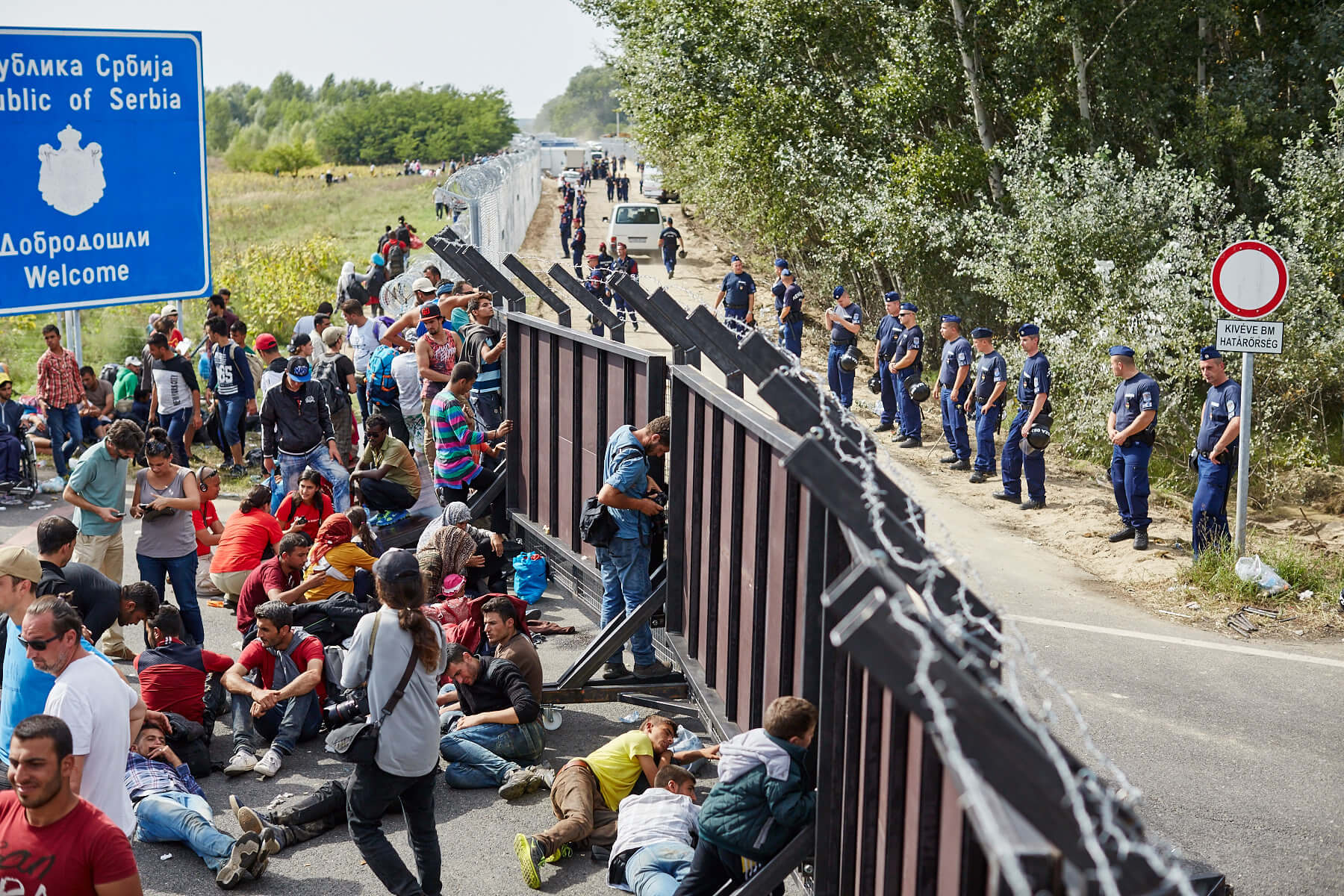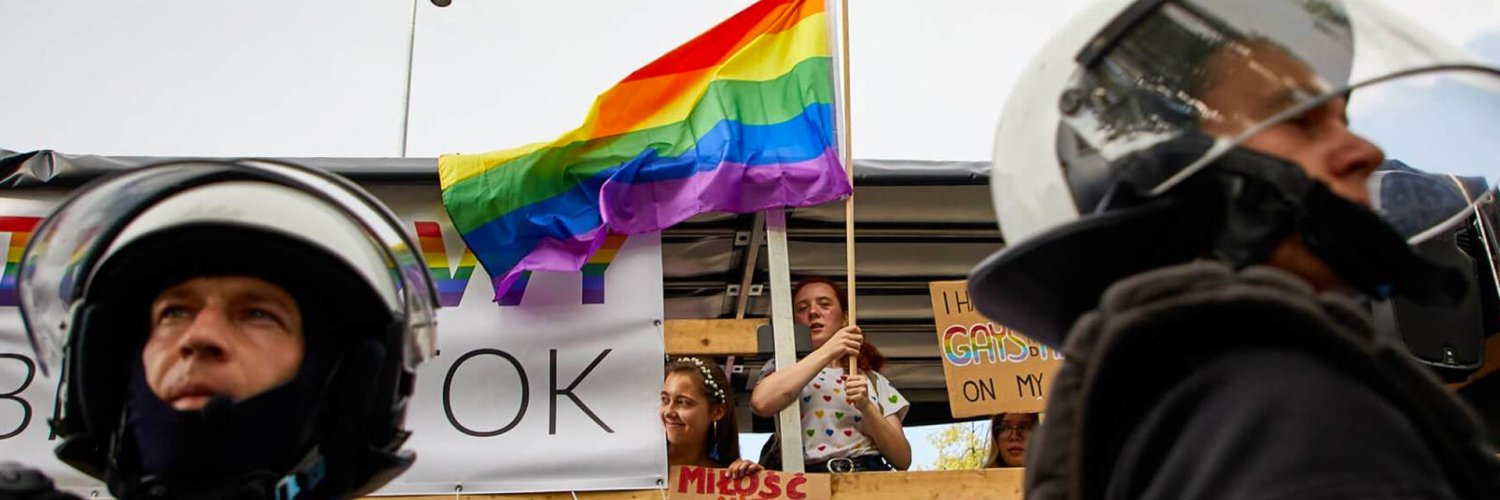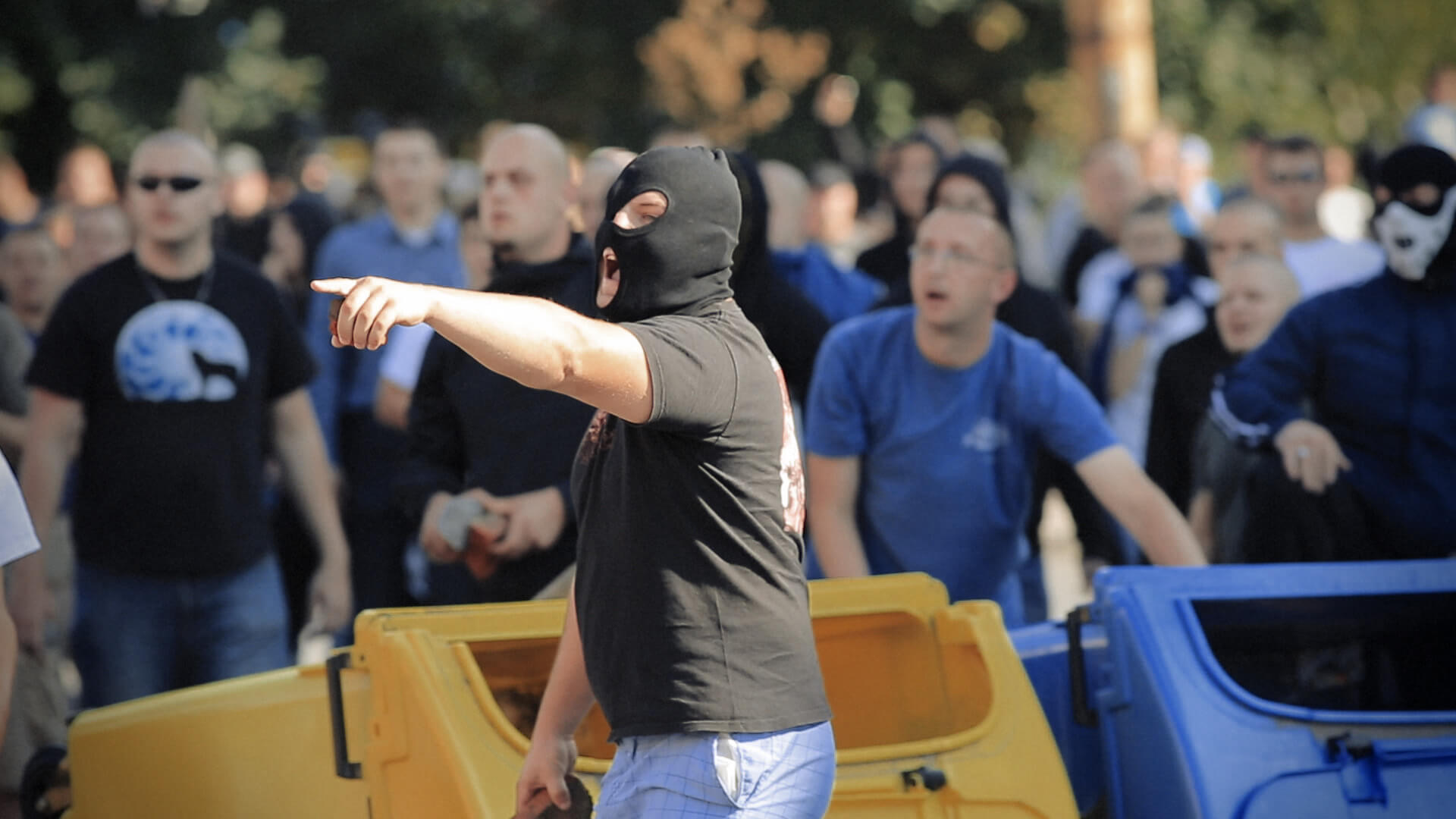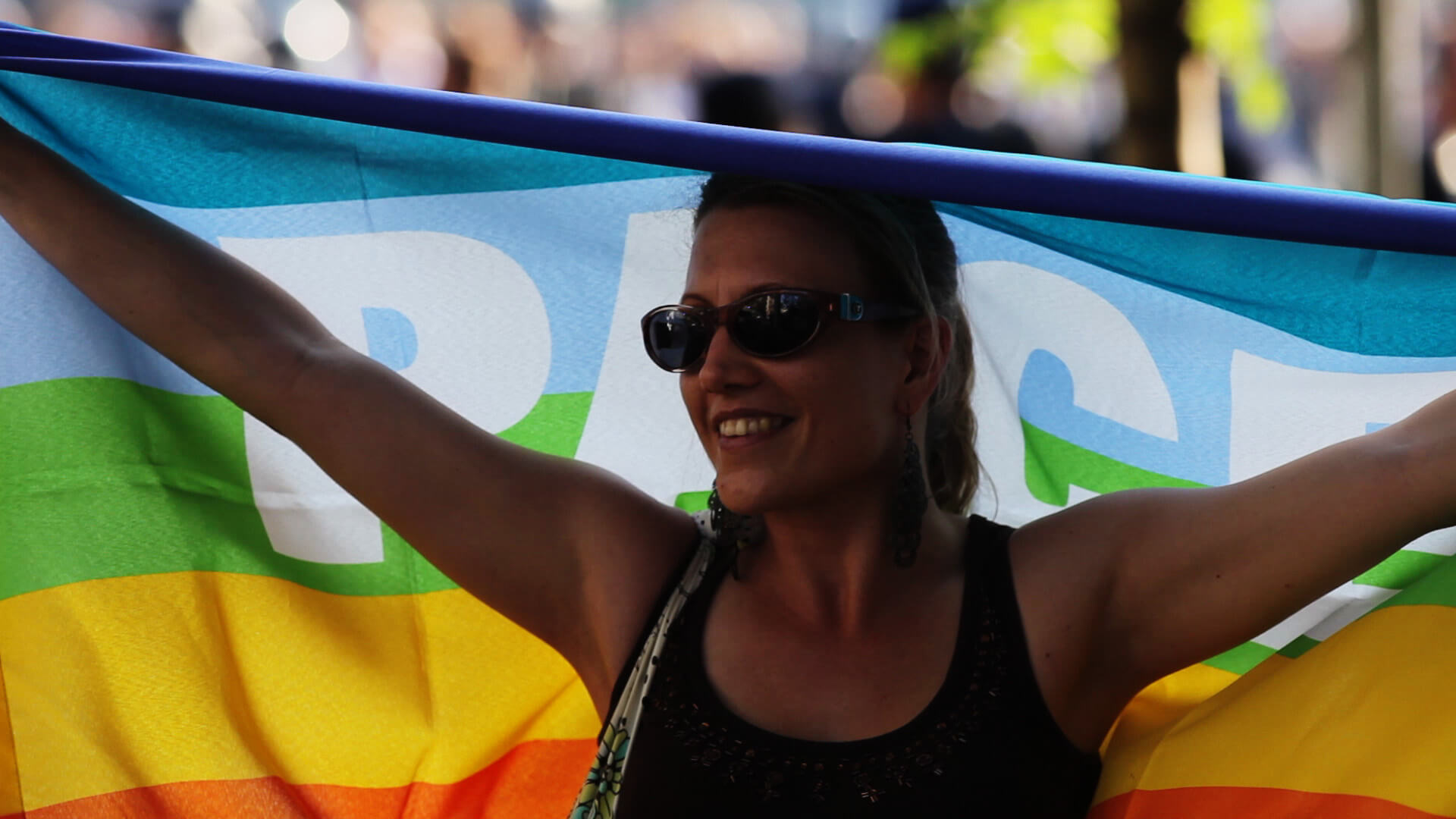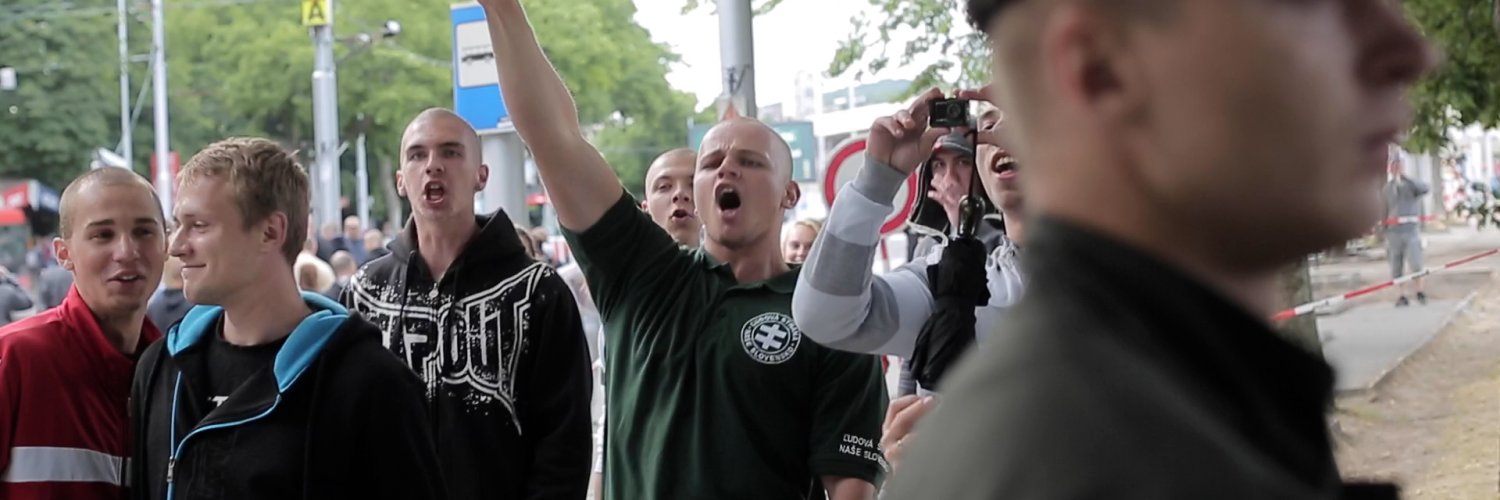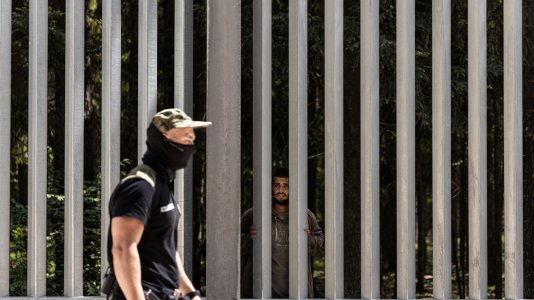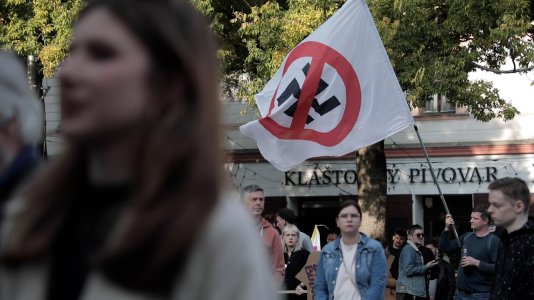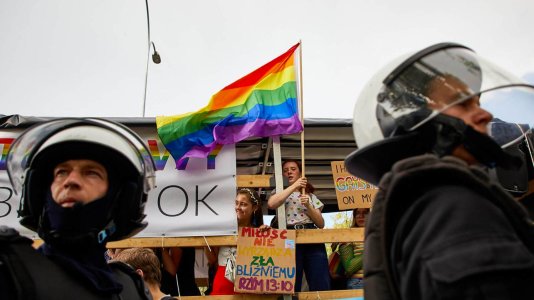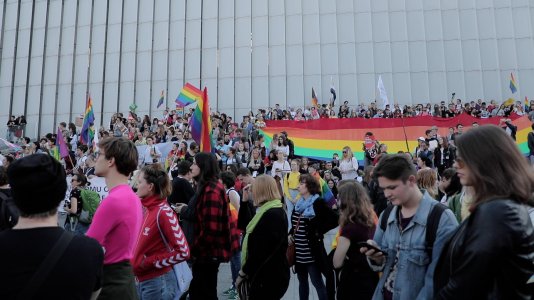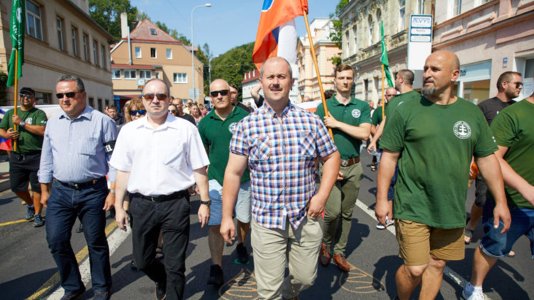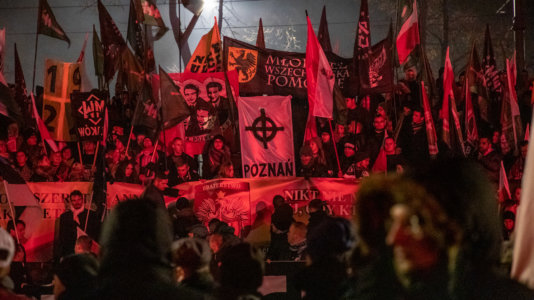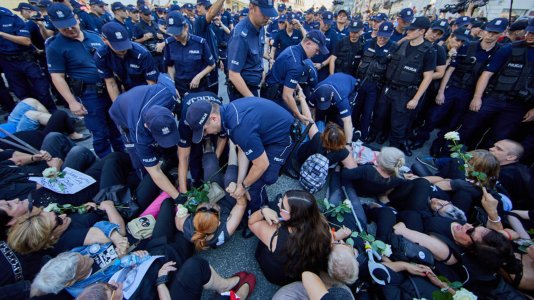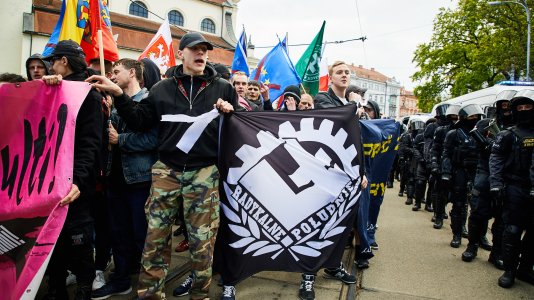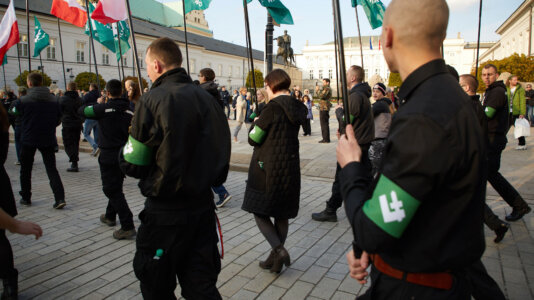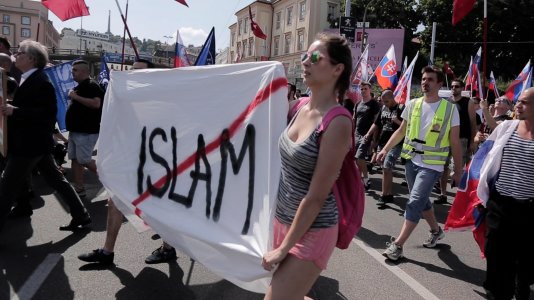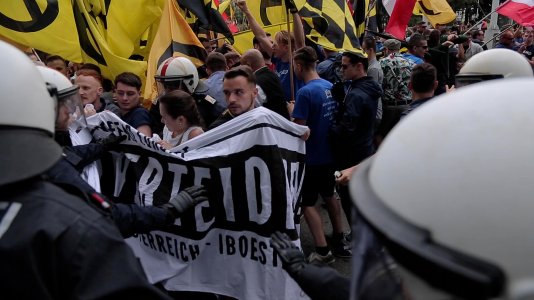The Polish-Belarus border has become a focal point of a burgeoning humanitarian crisis, drawing global attention as refugees find themselves trapped in a perilous situation. What started as a political standoff between the European Union (EU) and Belarus has evolved into a dire situation at the border, with vulnerable individuals bearing the brunt of the escalating tensions. The crisis began in 2021 when Belarus, under President Alexander Lukashenko, allegedly encouraged refugees, to cross into...
Four days after the planned murder of Matúš and Juraj on Zámocká Street, a gathering took place in their memory. The event, titled “Staying in the Streets – Antifascist March through the City,” wound its way from SNP Square to the Parliament building. Participants voiced solidarity with LGBTQ+ communities and emphatically rejected fascism in all its guises. During the rally at the Parliament building, speakers reiterated the importance of continued resistance against ideologies...
On July 20th, 2019, a Pride parade in the city of Bialystok, Poland turned violent when far-right groups clashed with LGBTQ activists. However, as the parade began, counter-protesters began to hurl insults and objects at the marchers, including rocks, bottles, and firecrackers. Some counter-protesters even attempted to break through police barriers to physically attack the parade participants. The violence continued to escalate throughout the day, with police using tear gas and water cannons to...
On October 13th, 2018, Lublin, a city in eastern Poland, held its first-ever LGBTQ+ Pride parade. The event, organized by Lublin Equality Parade, was intended to promote tolerance and acceptance of the LGBTQ+ community and celebrate diversity. Despite the parade being a peaceful demonstration, it was met with hostility from anti-LGBTQ+ protesters. An estimated 200 counter-demonstrators showed up to disrupt the celebrations, throwing bottles, bricks, and stones, as well as lighting flames at the...
On August 20th, 2018, far-right groups in the Czech Republic organized a protest in Dubí, a small town near the border with Germany. The protest was in response to a recent incident at a local swimming pool between two women. The far-right groups, including the far-right political party DSSS, used the incident as a rallying cry against what they saw as an increase in crime and violence perpetrated by immigrants and minorities. They claimed that the incident at the swimming pool was evidence of...
Tens of thousands of nationalists marched in a demonstration organized by far-right groups in Warsaw on November 11th, 2017, as Poles celebrated their country’s Independence Day. The far-right march has become one of the largest such demonstrations in Europe, overshadowing official state observances and other patriotic events. Participants carried banners depicting a far-right symbol dating to the 1930s and expressed sympathy for xenophobic or white supremacist ideas. Speakers spoke of...
On Thursday, August 17th, 2017, police in Poland forcefully removed feminist activists who were participating in a sit-in to block the route of a far-right rally in central Warsaw. The Women’s Strike group and activists from Obywatele RP, who aimed to defend democratic principles in Poland, were attempting to prevent several dozen extremists from marching on Poland’s Armed Forces Day. The feminist protesters, many holding photos of Heather Heyer, the American woman killed during a...
01.05.2017 Brno residents are not planning to block the 1 May march by the ultra-right convened by the Workers’ Youth this year. Instead, they are calling on people through Facebook to organize creative, entertaining, non-violent activities in the city center on 1 May under the slogan “You can’t salute the Nazis if you’re having a good time” (“Kdo si hraje, nehajluje”). In recent years, 1 May in Brno has repeatedly become a scene of neo-Nazi provocation...
On April 29, 2017, the far-right nationalist group Obóz Narodowo-Radykalny (ONR, or National Radical Camp) held a controversial march in Warsaw, Poland. The event marked the anniversary of the ONR’s founding in the 1930s, an era when the group was known for its xenophobic, anti-Semitic, and ultra-nationalist agenda. The march was met with widespread criticism from human rights organizations, left-wing activists, and civic groups. Opponents accused the ONR of promoting hate speech and extremist...
On November 11th, 2016, Poland celebrated its Independence Day, but the day was marred by controversy over the Marsz Niepodleglosci (March of Independence) organized by far-right groups. The march attracted tens of thousands of participants, many of whom carried banners with slogans promoting nationalism and anti-immigrant sentiment. The march began peacefully, but as it progressed, tensions rose, and there were reports of violence and hate speech. Far-right groups clashed with counter...
V79: Antifa vs. March of nationalists and far right movements against refugees and Islam in Bratislava
Hundreds of people participated in a neo-Nazi demonstration and march on Saturday, 25 June 2016 in Bratislava, Slovakia. The demonstration was held “against the dictatorship of Brussels and for stopping the liquidation of Europe,” according to the organizers. There was also a concurrent assembly by those opposed to extremism. The event was attended by fewer people than last year, and some of the demonstrators were from the Czech Republic. Event was attended by approximately 500 people, but more...
Vienna, June 11, 2016 – A far-right Identitarian movement staged a high-profile protest in the heart of Vienna, igniting fervent discussions about their ideology and raising concerns about the rise of nationalist sentiments in Europe. The demonstration, held under the banner of “Defending Europe,” attracted both supporters and critics, prompting a closer examination of the movement’s objectives and the implications for the broader political landscape. The Identitarian...















